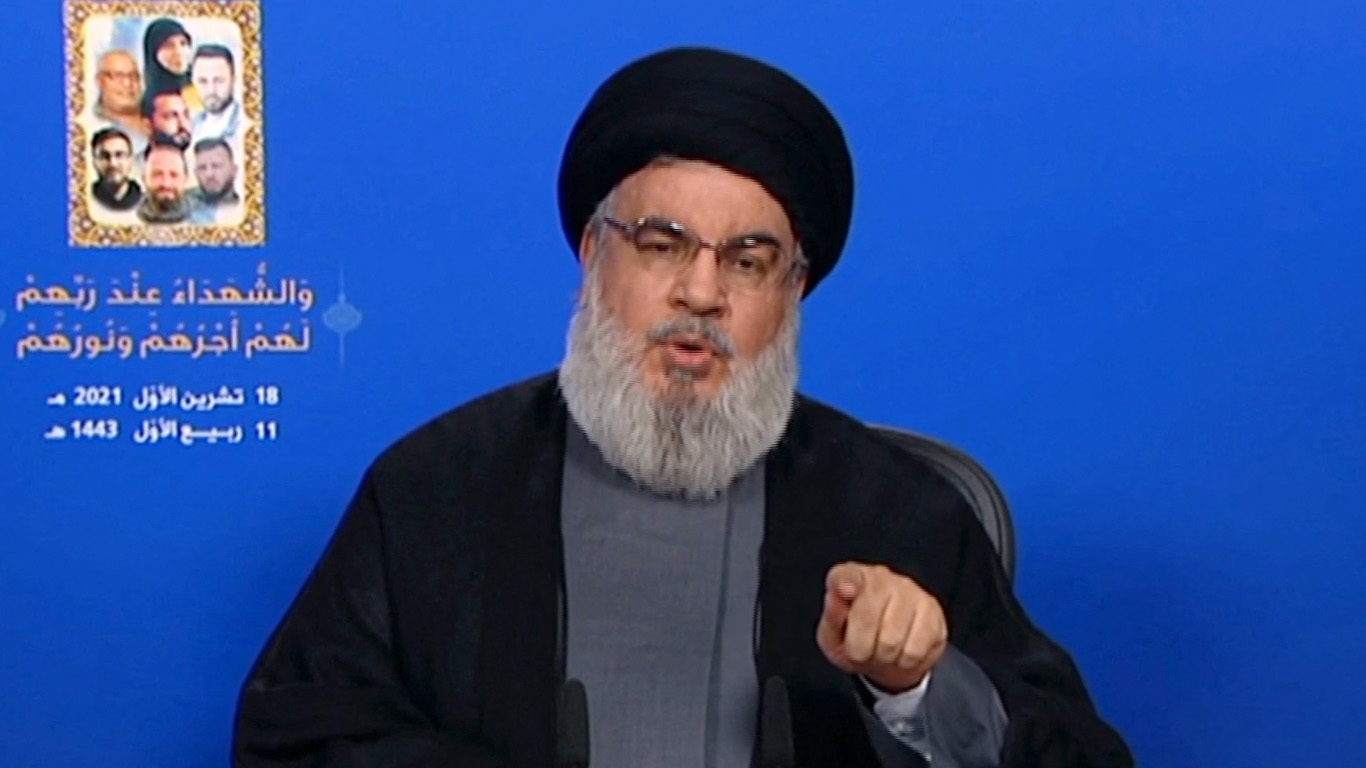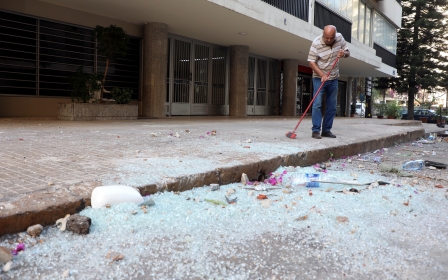Lebanon: Nasrallah says Hezbollah 'never been stronger'

Hezbollah chief Hassan Nasrallah said on Monday that the group has never been stronger, with 100,000 trained fighters, days after Lebanon witnessed its worst street violence in over a decade.
Seven people were killed on Thursday when a gun battle erupted as protesters from the Hezbollah and Amal groups were on their way to demonstrate against the lead investigator of the Beirut port blast.
Nasrallah lashed out at the Christian Lebanese Forces party and its leader Samir Geagea, repeating accusations that they were responsible for the killings. Geagea has denied the claim.
"The real agenda of the Lebanese Forces is civil war," Nasrallah said in a live televised speech.
"I advise the Lebanese Forces and its head to give up on this idea of civil war and internal strife completely," he said. "Your calculations are wrong ... the region has never seen Hezbollah as strong as now."
Heavy gunfire erupted in Beirut's southern suburb of Dahiya, Hezbollah's stronghold, to celebrate the start of Nasrallah's speech.
The bloodshed on Thursday, which stirred memories of the 1975-1990 civil war, added to fears for the stability of a country that is awash with weapons and suffering a severe economic meltdown.
Nasrallah said the violence was a dangerous development and marked a new phase in the country's internal politics, and added that Hezbollah was not the enemy of Lebanese Christians.
"The biggest threat to the Christian presence in Lebanon is the Lebanese Forces party and its head," Nasrallah said.
Despite his tough stand, Nasrallah dedicated a significant part of his speech to trying to reassure Lebanon's Christians, saying Hezbollah was protecting their rights and is allied with the largest Christian party, the Free Patriotic Movement.
'Internal strife'
The majority of the fatalities last Thursday were members of Amal and Hezbollah, who have been demanding the removal of Tarek Bitar, the lead investigator in an investigation into the 4 August 2020 Beirut port explosion.
The two Shia parties have accused the Lebanese Forces party of ambushing a protest heading to the Palace of Justice on Thursday morning, calling for Bitar’s replacement. The LF has denied the accusations.
The protesters also accuse Bitar of "bias" for subpoenaing several former ministers affiliated with Amal.
"What happened showed the Lebanese people the truth behind what these groups are doing in terms of trying to ignite internal strife and national division and threaten civic peace, and push the Lebanese back to the era of civil wars," Amal said in a statement.
Amal, which is led by Lebanese parliament speaker Nabih Berri, one of the most powerful political figures in the country, urged the authorities to arrest all those responsible for the violence.
The LF has denied it started the fighting and blamed the violence on Hezbollah "incitement" against Bitar, and accused the two parties of entering residential areas in the LF stronghold and provoking residents.
The inquiry into the 4 August 2020 explosion, which killed more than 200 people and devastated swathes of Beirut, has made little headway amid pushback from political factions.
Prime Minister Najib Mikati told the Al Modon newspaper on Monday that the government would not meet unless an agreement is reached concerning the investigation.
Mikati also said he was not planning to resign at the moment, adding that "the country can't be left in circumstances like this".
Tensions over the probe have spilt into the cabinet, with ministers aligned with the politicians the judge was seeking to question demanding his removal.
Middle East Eye delivers independent and unrivalled coverage and analysis of the Middle East, North Africa and beyond. To learn more about republishing this content and the associated fees, please fill out this form. More about MEE can be found here.






